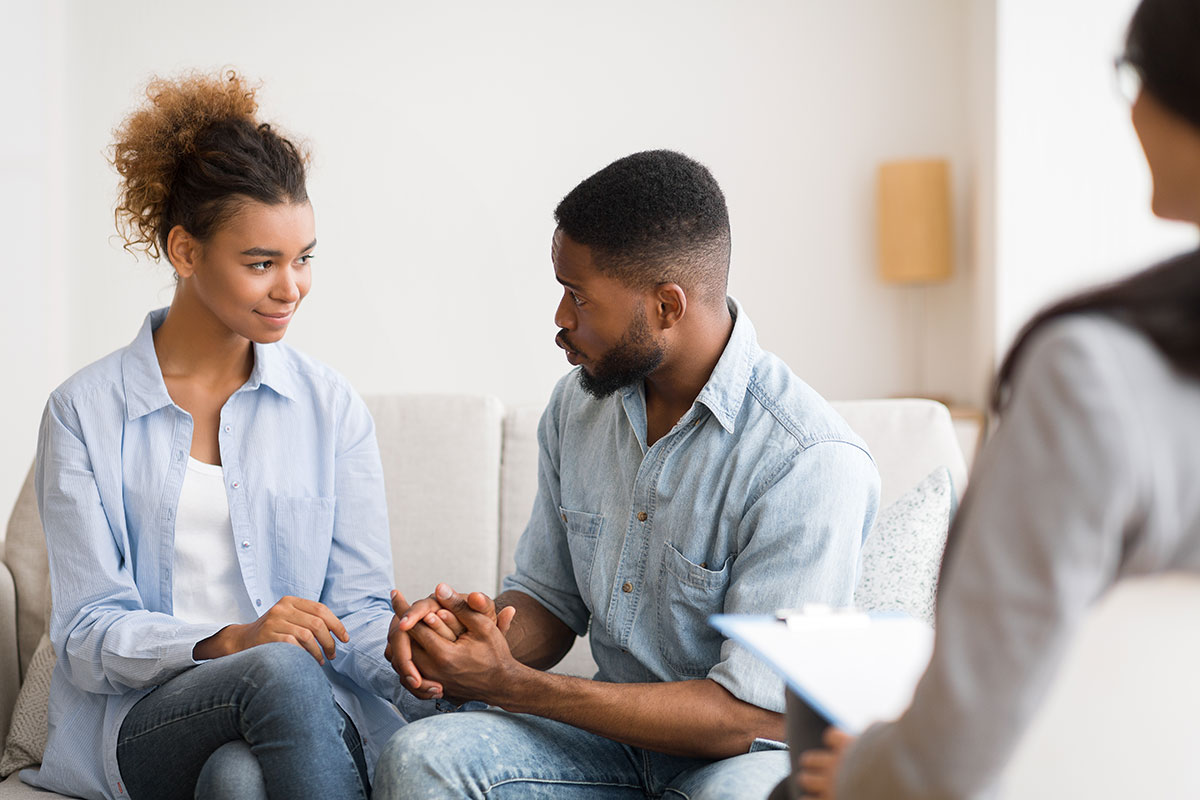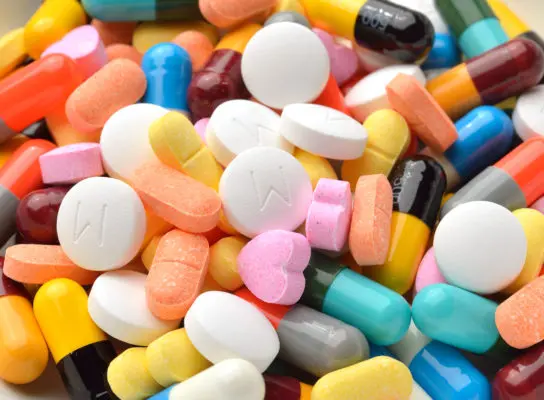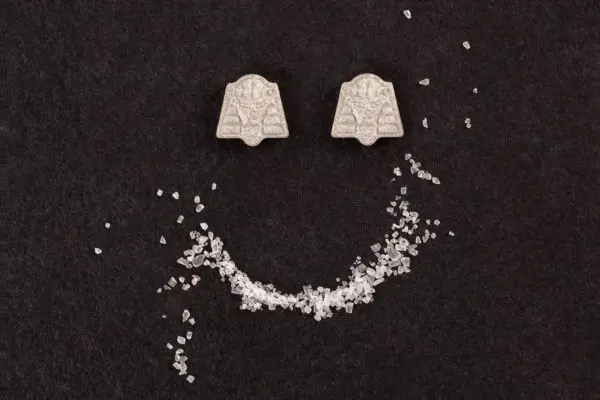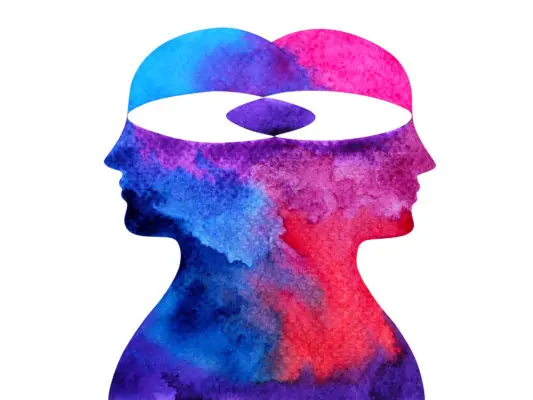3,4-methylenedioxymethamphetamine (MDMA) is a psychoactive substance with both stimulant and hallucinogenic effects. It works on neurotransmitters that influence mood and bonding, including dopamine, norepinephrine, serotonin, and oxytocin.
It is not a new substance, nor is the concept of its potential use in addressing mental health conditions or as an aid in the therapeutic process for individuals and couples. With continued studies, some researchers and therapists are seeking to build upon the existing evidence that it could be helpful in healing fractured partnerships.
Keep reading to learn about MDMA and its potential role in couples’ therapy.
MDMA-assisted therapy
MDMA was used by therapists (until the mid-1980s) as a tool to help create more openness and communication in psychotherapy sessions for both individuals and couples. It seemed to increase communication and ease the inhibitions that commonly hinder the flow of dialogue about processing painful emotions, particularly in cases involving trauma.
But as MDMA was gaining momentum in the realm of mental health treatment, it was also becoming widely used as a party drug, leading to the United States ban in 1985. As a result, further explorations of how MDMA could be helpful in the therapeutic process were mostly limited to clinical studies subject to federal approval.
In recent years, there has been increasing efforts to continue the research that has already demonstrated the effectiveness of MDMA in treating post-traumatic stress disorder (PTSD), and has been designated as a Breakthrough Therapy with an expedited path to approval by the U.S. Food and Drug Administration (FDA) should it succeed in each phase of clinical trials for that purpose. Additional trials are underway to explore the possible benefits of MDMA-assisted psychotherapy for social anxiety in adults with autism, anxiety related to living with a life-threatening illness, and eating disorders.
People often describe feeling that their heart has been opened during an experience with MDMA, as it calms the emotional response to fear and allows for a more thoughtful examination of the source of suffering. This has led to more questions about how MDMA could be used in other capacities, such as further research on its potential benefit to couples’ therapy.
Possible benefits
With the benefits of joint cognitive behavioral therapy and other types of psychotherapy for couples affected by PTSD, as well as the demonstrated promise of MDMA in treating the condition itself, there has been speculation about how the substance could be used in joint sessions as a catalyst for communication and healing.
Often, it is trauma and the fear of evoking emotionally painful memories that prevent people from being vulnerable, which is crucial both in discerning the source of discord between two individuals as well as for healing.
MDMA has been classified as an empathogen because of its influence on a person’s level of empathy, sympathy, compassion, and willingness to connect on a deeper level with others (particularly someone they are close to). This longing to know and be known during an experience with MDMA may offer a powerful antidote to the problem of fears standing in the way of vulnerability and subsequent opportunities for connection.
Recent studies have mostly focused on the potentially positive role of MDMA in joint therapy for partnerships wherein one or both of the individuals suffer from PTSD, and there is currently no conclusive research that would indicate its future as a mainstream aid to couples counseling. It is therefore unknown whether or not it really provides lasting benefit in the process of mending relationships in situations that do not involve one or more cases of PTSD.
Should there ever be clinical trials that clear the path of approval for use of MDMA in couples’ therapy, however, it should be noted that certain health and psychiatric conditions may exclude some from being eligible. For more information about physical and mental health contraindications related to MDMA, read Psychable’s Beginner’s Guide to MDMA.
Can MDMA help couples in therapy?
So, can MDMA help couples in therapy? The answer is complicated.
MDMA may help facilitate more productive communication and help lower emotional barriers to open discussions. Sometimes, greater honesty in a therapy setting can bring a couple closer together and help them heal and grow. With the chance to experience greater empathy and compassion, a couple is empowered to recognize the kind of actionable change that could create a more emotionally rewarding partnership.
Two ethicists at Oxford named Brian Earp and Julian Savulescu authored a book entitled Love is the Drug; they assert that over time the experiences of a relationship can cause trauma in and of itself, which ultimately results in both individuals becoming more and more closed off to one another, both emotionally and in their willingness to communicate openly with one another. They speculate that controlled sessions with MDMA could potentially reopen emotional pathways to one another, creating a way for partners to speak more from the heart.
There is always the possibility, however, that fewer inhibitions and a reduced sense of fear will bring about revelations pointing to more significant underlying issues. Couples who decide to try MDMA-assisted therapy (or any productive type of therapy) should be aware of the fact that it may not result in a decision that would benefit the continuation of a relationship. Couples should first explore their level of comfort with the truth, whether or not it leads to the continuation of the relationship.
Currently, MDMA is not approved for use outside of a clinical trial setting and is illegal for personal purposes. Unless a couple is participating in a study, there is no way to receive MDMA from a therapist legally at this time. Also known casually as molly or ecstasy, MDMA that is obtained illegally is almost always adulterated with other potentially dangerous substances.
Many therapists offer integration services to couples who have had their own MDMA experiences and wish to process the event with a knowledgeable professional. Check out Psychable’s directory to find such practitioners who can help.
More information
To learn more about MDMA, its effects and risks, and for information about its legality or availability, read Psychable’s Beginner’s Guide to MDMA.
Read this study for information about how MDMA has been explored in conjoint cognitive-behavioral therapy for couples affected by PTSD.
The Multidisciplinary Association for Psychedelic Studies (MAPS) offers a list of current and proposed studies in MDMA-assisted psychotherapy here.
For answers to commonly asked questions, see this MDMA fact sheet provided by The Drug Policy Alliance.









